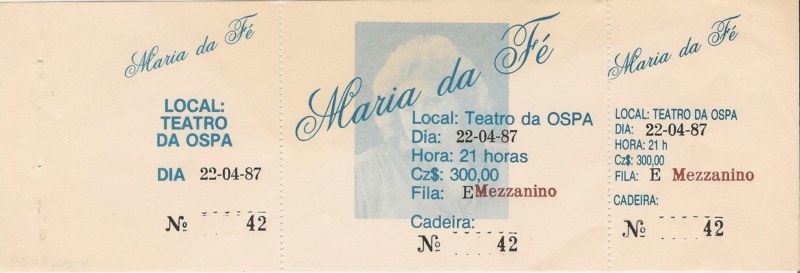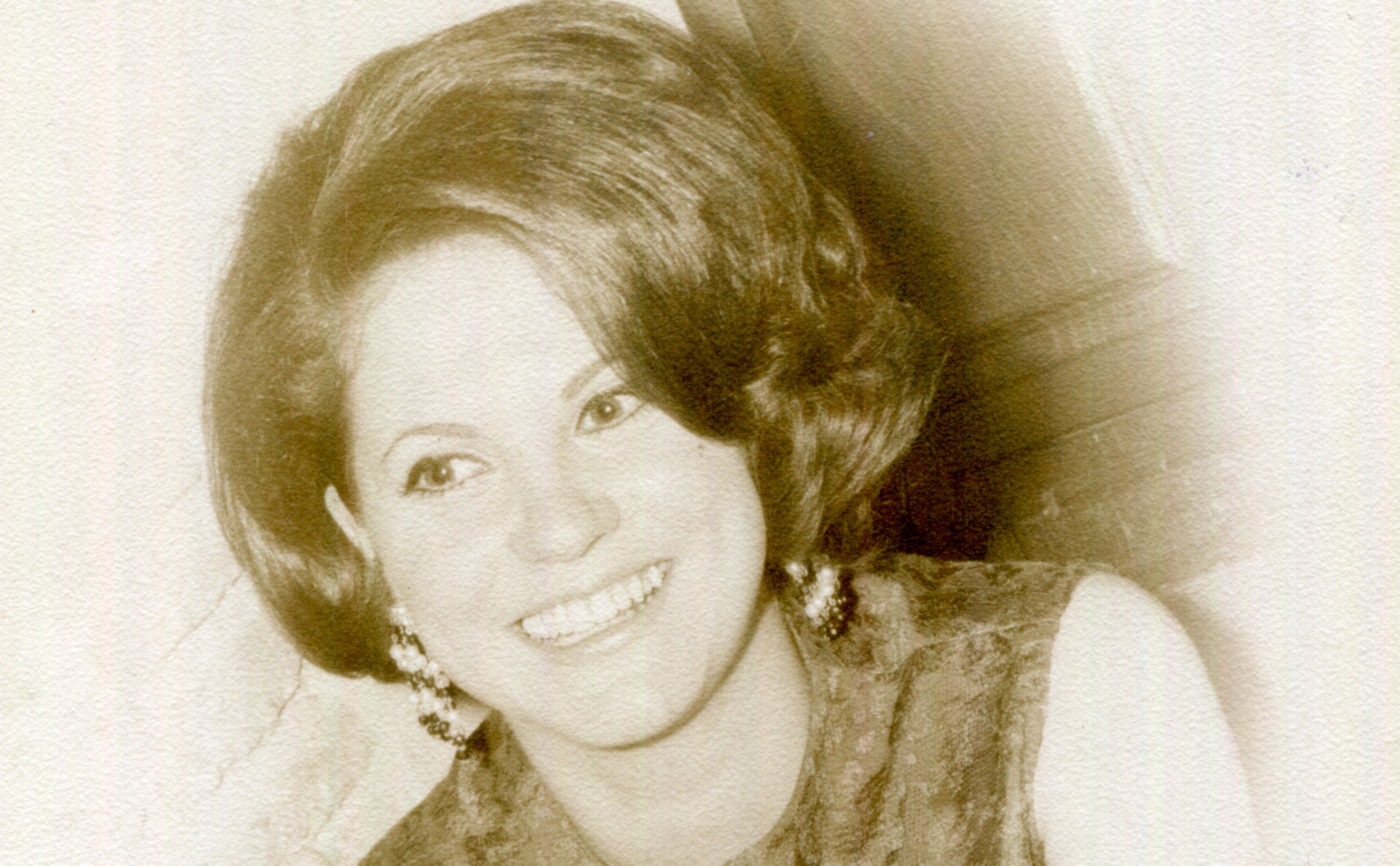Know more:
Maria da Fé
(N. 25 May, 1942 - M. May, 1942)Her baptism name is Maria da Conceição da Costa Marques; she was born in Porto on the 25 May 1942. Her mother had 17 sons, but she currently has only 5 brothers.
She went to elementary school in Porto, where she began singing under the influence of her mother, using the artistic name Maria da Conceição at the time.
For a short period of time, still very young, she worked as a seamstress and tailor assistant to help out her parents, and also at the fabrics factory Nogueira, activities which she combined with weekend performances.
The fado singer only began counting her career years from 1963, two years after she came to Lisbon, although by then she had already performed and even released records.
Maria da Fé started singing Fado as a child; old she performed at amateur events at only 9 years. At 13 she won a competition organized by "Jornal de Notícias" and the entrepreneur Domingos Parquer at Feira Popular do Porto. In 1959, at 16 years old, she won once again, being crowned Queen of Songstresses in the same competition, this time held at Palácio de Cristal.
The following year, she comes to live in Lisbon with her and encouraged by the poet Francisco Radamanto, she quickly joins the cast of one of the most important fado houses in Lisbon, Adega Machado. After two months, she went to Parrreirinha de Alfama, where she was invited to perform for 14 days at a show in Casino Estoril.
The registration of her artistic name as Maria da Fé happened at the same time she came to Lisbon. She accepted the suggestion of the fado singer Raul Dias as she wanted to get the professional card at the time.
She married the poet José Luís Gordo in 1968, and had two daughters. She never had another profession but fado singer, until she joined her husband in the management of the fado house they opened in 1975, Senhor Vinho. This house is in the Madragoa neighbourhood and was first located at Rua das Trinas; in 1981 they moved to Rua do Meio à Lapa, where they remain to this date.
In 1969 she enters RTP’s Song Festival, debuting the fado gender in the competition, performing "Vento do Norte", by Francisco Nicholson and Braga dos Santos.
Maria da Fé performed at several fado houses, but "her house” is the one she opened with her husband, Senhor Vinho. Her interpretations gave her a huge success; she was regularly mentioned on the media and recorded successive albums, performed at countless shows throughout Portugal and toured trough Europe, North Africa, Guiné, Angola and Mozambique, North and South America and southern Australia.
Her first international performance was at a popular association in Newark (New Jersey), followed by countless countries and show rooms in big cities, especially in Brazil, where Maria da Fé performed in the 1960s, returning in 1984 in the context of the Portuguese-Brazilian connection and again in the 1990s.
In 1984 she enters the movie "To Catch a King", directed by Clive Donner and starred by Robert Wagner, performing two fados: "Cantarei até que a voz me doa" and "Portugal, meu amor".
Maria da Fé continued with her individual concerts, celebrating her career’s 40th anniversary in 2003 at Teatro S. Luiz, with a show called "Divino Fado", featuring such guests as Ana Sofia Varela, António Zambujo, Carlos Macedo, Jorge Fernando, Ana Moura, Aldina Duarte, João Ferreira Rosa and Argentina Santos.
Nowadays, Maria da Fé only performs where she wants to; she keeps managing her Fado House where she often performs, knowing that she is the main star of her house’s programme, despite having many renowned artists in its cast.
She recorded her first record in 1960, still in Porto, with two fados of her own and two by Fernando Manuel, a fado singer who belonged to the cast of Casa de Fados Viela. She recorded many records after this, during a professional career of more than 40 years.
Still in the 1960s she was invited by José Duarte to join the project Pop Fado, recording her performances accompanied by an electric guitar and the drums. This project was really polemic in the fado traditionalist world.
Recently, in 2000, she joined the project Entre Vozes – along with Alexandra, Alice Pires and Lenita Gentil, with the purpose of performing several important Fados solo, on duets, trios or quartets. She released only one CD with this group, in 2000; Maria da Fé and Alexandra left the project being replaced by Maria Armanda and Teresa Tapadas.
In the celebrating context of her career’s 40th anniversary an inedited CDcalled "Divino Fado", the same name of her show of 2003, is released at Teatro S. Luiz in Lisbon.
Her vast discography has about 30 Lps and 15 Cds. Her most recent release is from 2005 – the CD "Nome de Fado".
Interpreter of iconic themes such as "Cantarei até que a voz me doa", by José Luís Gordo and José Fontes Rocha; or "Valeu a Pena", composed by professor Moniz Pereira, Maria da Fé is an unavoidable figure in the fado universe since the 1960s.
Through the house Senhor Vinho, the fado singer maintains a strong connection to the new generations of fado singers and many performers have already been part of her restaurant’s cast, such as Mariza, Camané, Ana Moura, Aldina Duarte or António Zambujo, among others.
Awards:
Press Award, 1970;
Career Award during Grande Noite do Fado, Casa da Imprensa, 1997;
Merit Cross of the Portuguese Red Cross, 2005;
Cultural Merit Medal, Culture Ministry, 2005;
Gold Medal of the City of Porto, 2005;
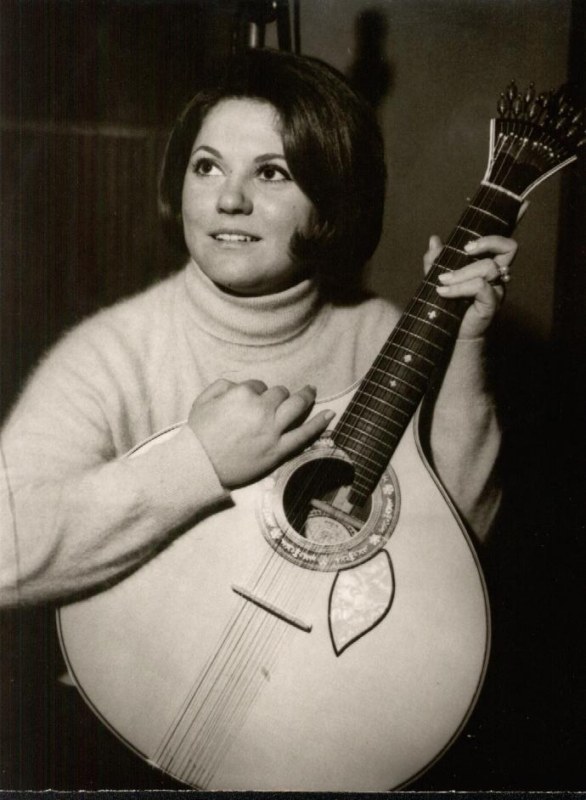
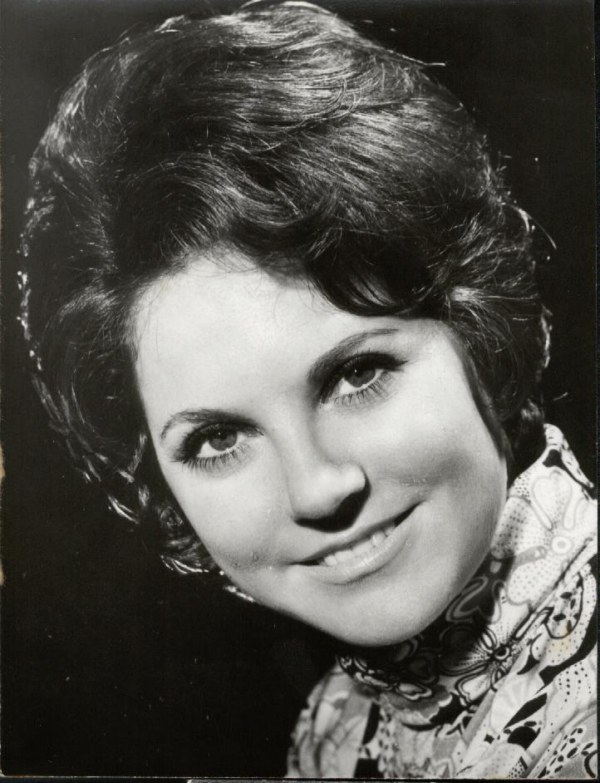
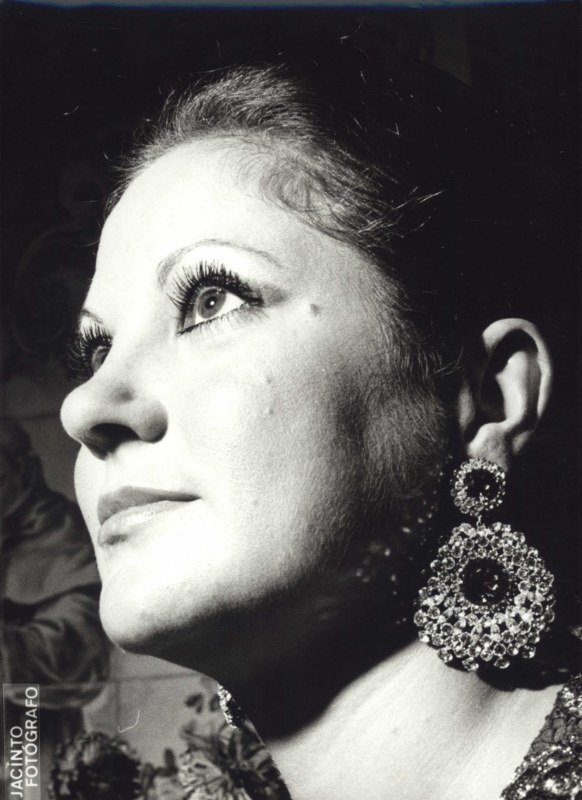
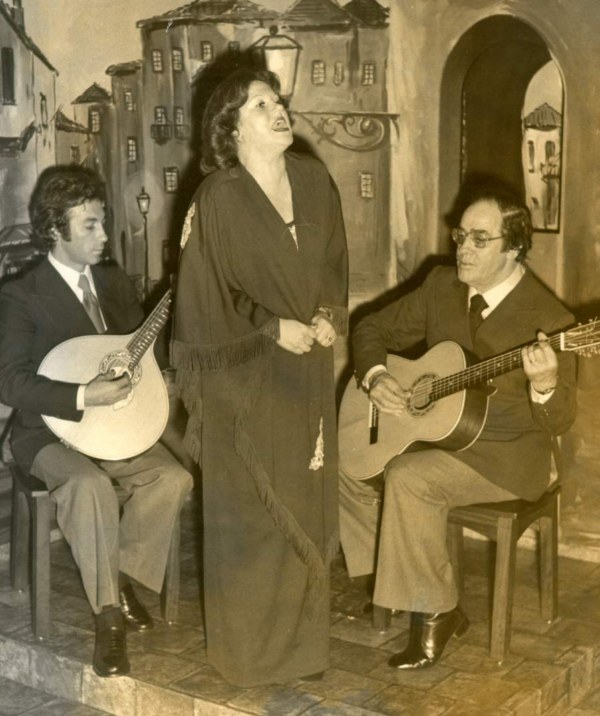
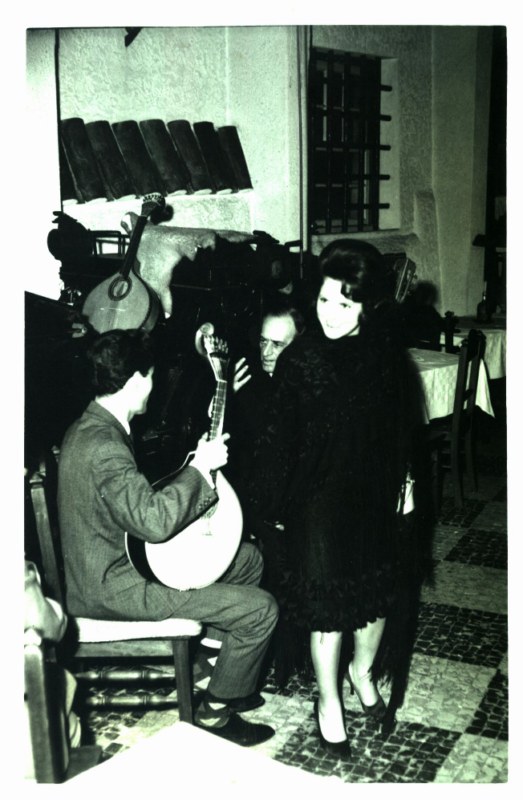
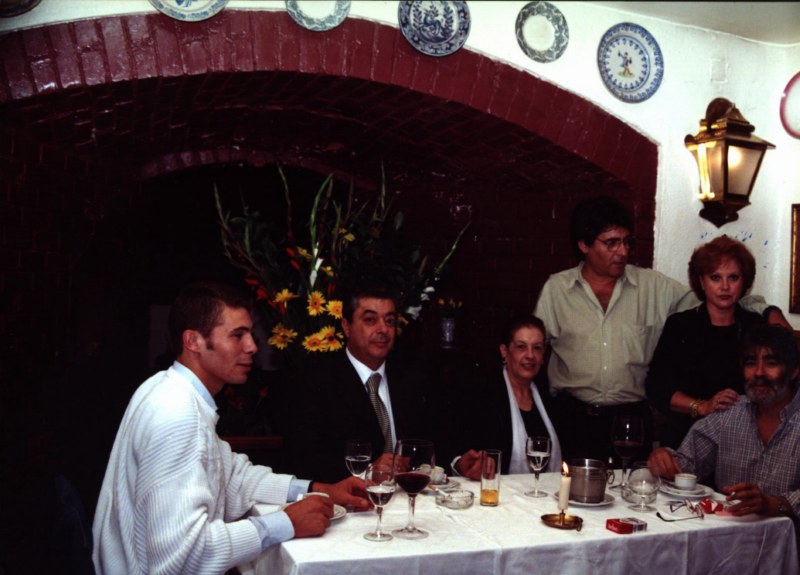
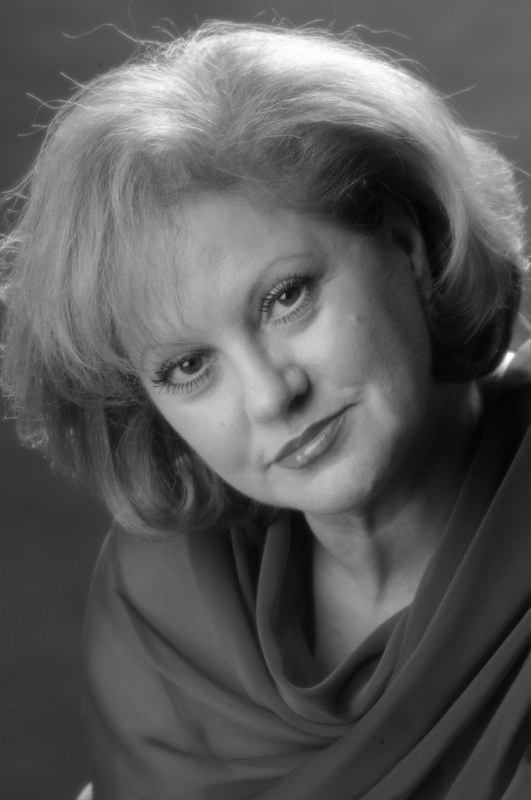
-
Até Que a Voz Me Doa Maria da Fé (José Luís Gordo / Fontes Rocha)
-
Valeu a Pena Maria da Fé (Mário Moniz Pereira)
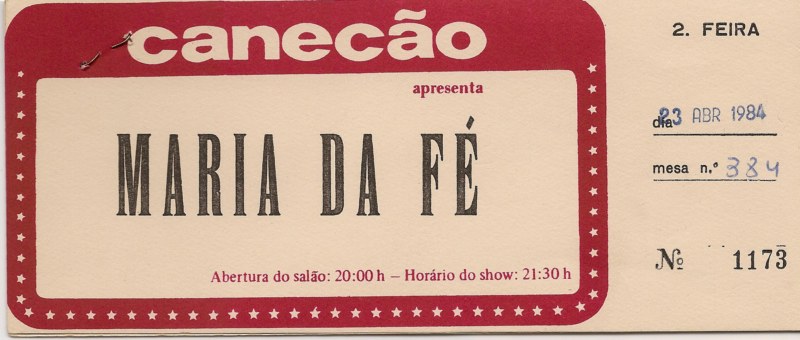
Bilhete de Concerto | Concert Ticket de Maria da Fé, Canecão, Rio de Janeiro, 1983
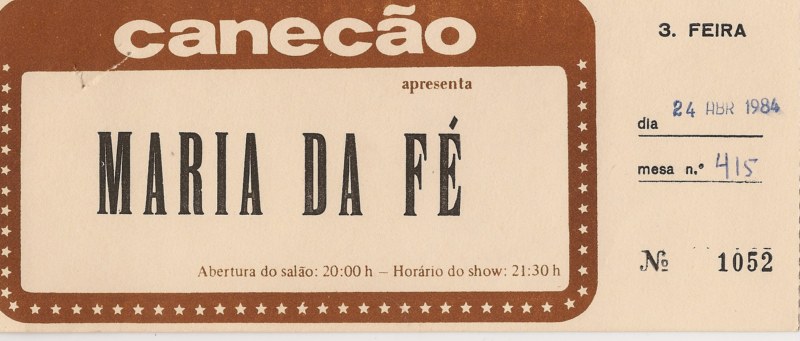
Bilhete de Concerto | Concert Ticket de Maria da Fé, Canecão, Rio de Janeiro, 1984
